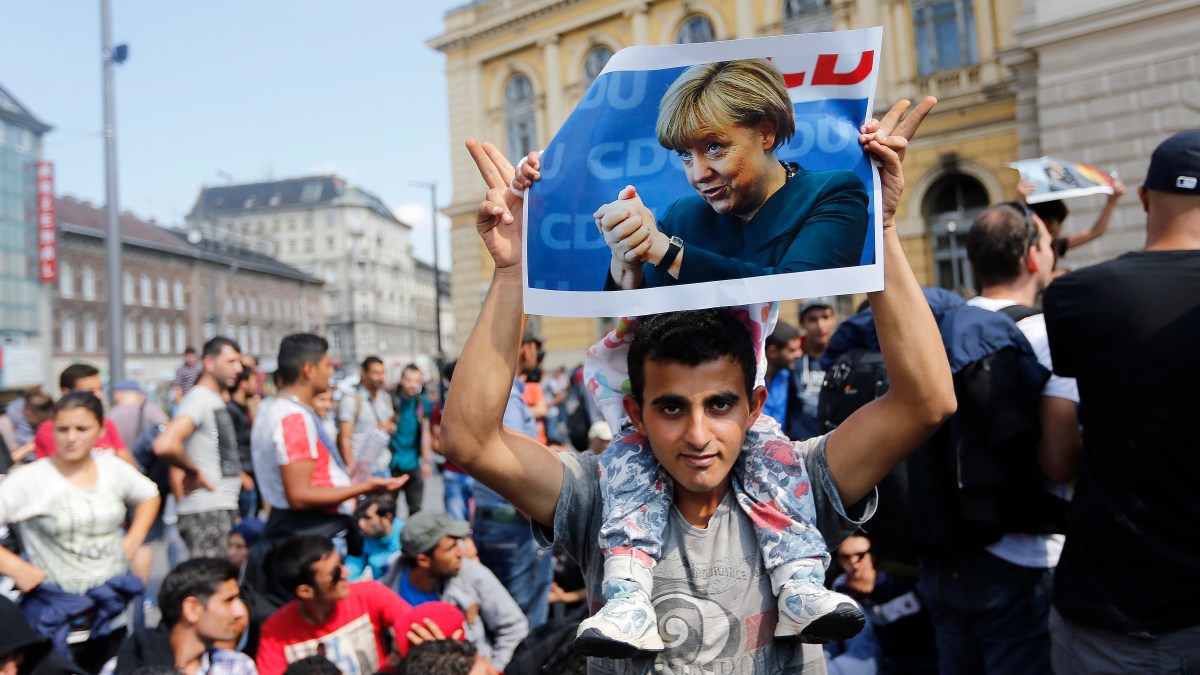Germany’s towns and cities have said that the national immigration “emergency” is beginning to ease after the number of asylum seekers arriving in the country halved since the start of last year.
For years, many of the country’s local authorities have complained that they were being stretched to breaking point by the volume of irregular immigrants they have been asked to accommodate.
Next month will mark the tenth anniversary of the peak of the European migration crisis, when Angela Merkel, the chancellor, decided to keep Germany’s borders open to an influx of more than a million asylum seekers over the following 12 months.
Since then the country has granted protection to 3.5 million refugees, including about 1.2 million Ukrainians who were driven to flee their homes by the full-scale Russian invasion.
The number of asylum claims began to rise sharply again in the wake of the pandemic, reaching 329,000 in 2023.
A series of mass killings carried out by immigrants then drove crime and migration to the top of the political agenda in the Bundestag election earlier this year.
In the first six months of 2025, however, there were only 61,336 fresh asylum applications, half as many as were recorded over the same period in 2024. Germany is now no longer the European Union’s biggest destination for asylum seekers, having fallen behind Spain and France.
The Association of German Cities, which represents about 3,200 municipal authorities across the country, said this shift had already resulted in a tangible drop in the pressure on their public services.
“In some towns there were still emergency accommodation facilities in tents, because otherwise there wouldn’t have been places for [the asylum seekers] to stay. Now this kind of emergency accommodation can in some cases be dismantled,” Christian Schuchardt, the organisation’s director, told Augsburger Allgemeine.
André Berghegger, the head of the German Association of Towns and Municipalities, a separate umbrella body for local authorities, expressed similarly qualified relief, saying that its members finally had a “pause in which to catch their breath”.
The reasons for the drop in arrivals are disputed. The current government under Friedrich Merz, which promised a “migration turnaround” and an “end to illegal immigration”, has sought to claim the credit.
It argues that its stringent border measures, most notably an order to turn back virtually all asylum seekers at Germany’s frontiers, have worked as a potent deterrent.
• Munich airport plans ‘deportation terminal’ to return 100 migrants a day
However, allies of Olaf Scholz, Merz’s centre-left predecessor, note that the asylum figures had already begun to drop long before Merz took office.
They insist that Merz is mainly reaping the benefits of the measures taken under Scholz, which included the imposition of “temporary” controls across the country’s entire land border and steps to turn away several categories of asylum seekers.
Migration experts tend to believe that the most important factor is probably not so much German immigration policy as broader shifts in the geopolitics of Europe’s neighbourhood.
Data from Frontex, the European Union’s border agency, show that irregular crossings into the bloc as a whole fell by 38 per cent last year.
• EU wants UN backing for Rwanda-style migrant ‘return hubs’
That included a 78 per cent drop in the number of migrants who were detected trying to enter the EU through the west Balkans route, which often ultimately leads them to Germany.
Those figures have declined further still in the first months of 2025. That is, in turn, down to a range of causes, including the fall of the Assad regime in Syria, a fall in the number of migrants leaving camps in Turkey, and the tightening of borders in the Balkans.
Another moot point is whether German voters are minded to reward Merz for the reduction in asylum claims.
Surveys show that immigration and integration have returned to the top of the electorate’s list of priorities since the end of June, ahead of the stagnant economy and concerns about the affordability of the welfare state.
The hard-right Alternative for Germany party, which has made migration its central campaigning issue, is also hovering around a record high in the polls, vying for first place with Merz’s conservative Christian Democrats.
